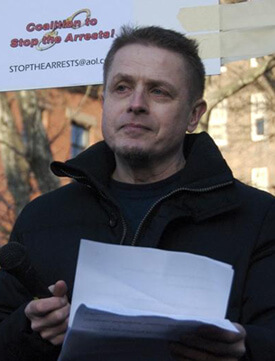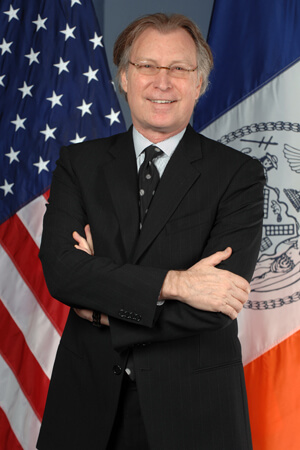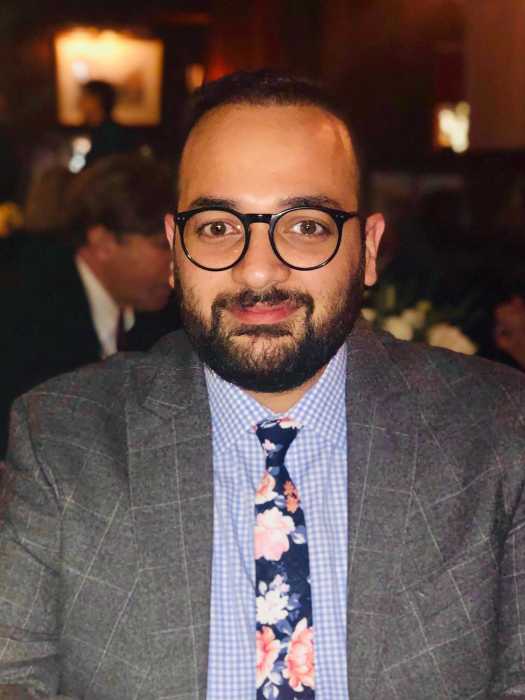As anyone who spent three minutes listening to Mayor Bill de Blasio’s reelection message knows, crime is down.
New York City last year had the fewest murders since modern statistical methods started. And it isn’t just de Blasio; crime fell during Mayor Michael Bloomberg’s three terms. It’s been a long-term trend.
Yet New York still clings to the harsh laws and practices that catapulted the state into the age of mass incarceration during the 1980s. Undoing these law involves decreasing the leverage of police and district attorneys, who typically keep an arrestee behind bars while negotiating a plea. Almost invariably, they are people of color and/ or the poor.
PERSPECTIVE: The Long View
Reformers are trying to end this hammerlock by changing the laws on bail, speedy trials, and discovery. A glimmer of hope swept through the legal community when Governor Andrew Cuomo in his State of the State Address promised to “expand the discovery process to include disclosure of information in a timely manner including evidence and information favorable to the defense; intended exhibits; expert opinion evidence; witnesses’ criminal history information; and search warrant information.”
Discovery is where the other side in a legal case responds to your questions if it’s a civil case involving property, but in New York different rules apply in criminal cases where life and liberty are at stake. Disclosure becomes voluntary, the district attorney decides if the accused’s lawyer examines evidence. As Cuomo admitted in his recent address, New York law is indefensible, and there was hope that a cornerstone of the mass incarceration edifice would be removed.
Then the governor’s “Public Protection and General Government Act” was printed as part of his preliminary state budget and reformers felt betrayed.
“This bill does little to change a broken system” said ,, attorney-in-chief of criminal practice at the Legal Aid Society. “Prosecutors would have blanket authority to redact any witness-identifying information — fundamental evidence needed for the defense to fully understand and investigate cases and properly advise clients.”
The present system places the poor, especially those dependent on Legal Aid, in an impossible position. Their attorneys are asked to negotiate the length of a defendant’s prison term without knowing the strengths and weaknesses of the prosecutor’s case. An assistant district attorney has no obligation to inform the accused of their case, yet they press the defendant to enter a guilty plea. If a defendant declines to plead guilty, they could face a lengthy prison sentence should the prosecutor go for the top charge.
“If your accused of something, you want to know to what it is your accused of,” argued a freshman state senator, Jamaal Bailey of the Bronx. The very first bill Bailey filed in the Senate sought to reform New York’s discovery law. An attorney who practiced civil law, he rejected the secretive practices in the criminal law.
The system is palpably unfair. In a long New York Times enterprise story last August 7, the Queens and Manhattan district attorneys freely admitted that defense lawyers who have good relationships with prosecutors are “apt to get an earlier crack at discovery than others.” Hire a former assistant district attorney and the voluntary system works in your favor. Be poor with a public defender and you will operate in the dark.
Getting arrested is often a road to complete poverty. The Times story describes the case of Aaron Cedres, a bouncer in a Bronx nightclub, who was charged with gang assault after a fight broke out in front of the club. He knew he was innocent and that the cameras installed by his employer would prove he was innocent.
Yet on the top count, he faced a 25-year sentence, and the Bronx DA, feigning magnanimity and claiming that the security tapes looked bad, offered him a five-year sentence in return for a guilty plea. Cedres, a 25-year-old father who had never been arrested, stuck to his guns and insisted that his lawyer review the tape.
The DA refused and while this test of wills unfurled, Cedres lost his job, his wife and child left him, he became homeless, and he started to be arrested for quality of life crimes like fare-beating because $2.75 had become a big deal in his jobless life. With the felony charges hanging over his head, nobody hired him.
Finally, the tape was turned over showing Cedres had told the truth — he threw two punches separating the owner’s son from the brawling mob and pulled him to safety inside the nightclub. Cedres was guilty of nothing more than doing his job.
Reformers are asking that disclosure be mandatory and done promptly. The DAs claim that witnesses will be intimidated if the defense learns their names. Undoubtedly, that can be a problem, but prosecutors in Los Angeles and Chicago manage to protect their witnesses, and reformers argue in New York they could do so, as well, if discovery were mandatory.
Cuomo would leave the DAs in charge of disclosure by permitting them to redact information. According to James at Legal Aid, “Key information based on a number of subjective criteria, including the defendant’s ‘character’ and ‘reputation,’ would remain secret. It maintains the tactical advantages prosecutors have over defense attorneys.”
Joe Lentol, the longtime chair of the State Assembly Codes Committee, is blunt in pointing out that the obstacle to reform is the political influence of the district attorneys. “The rules are in their favor,” he said. “Why should they change it?”



































